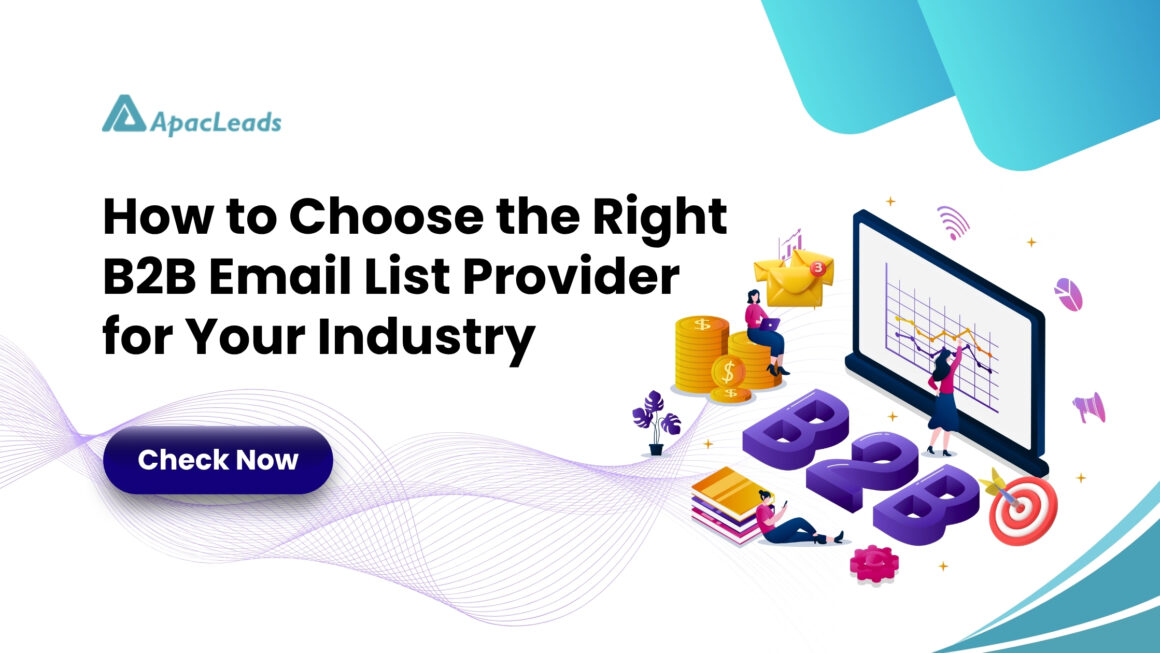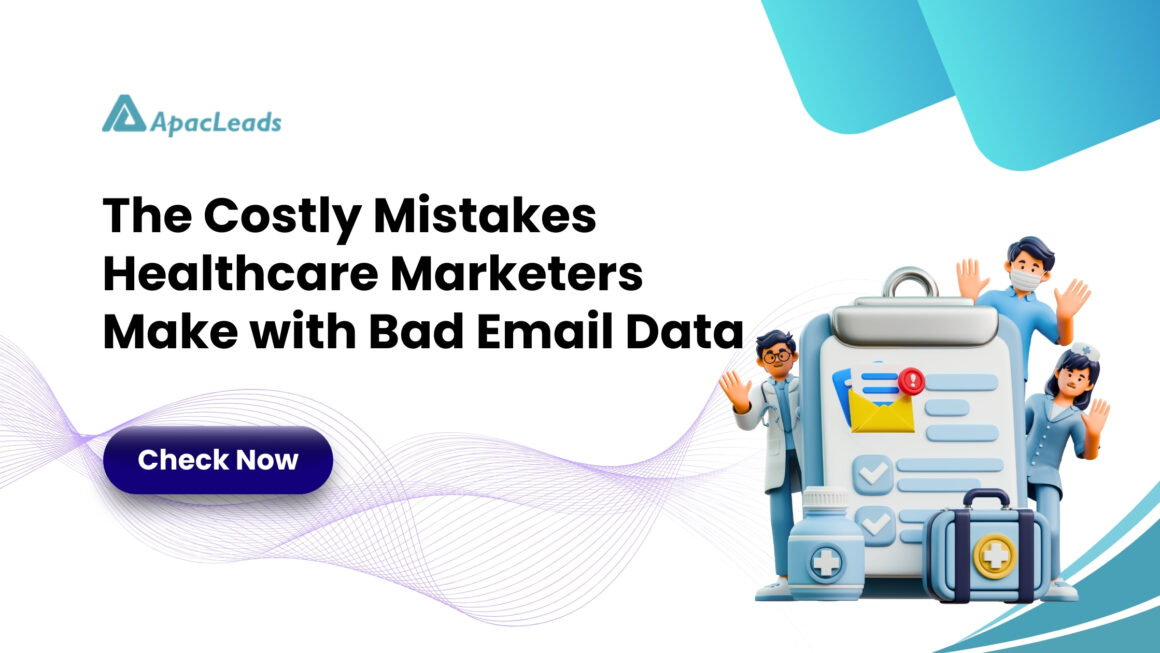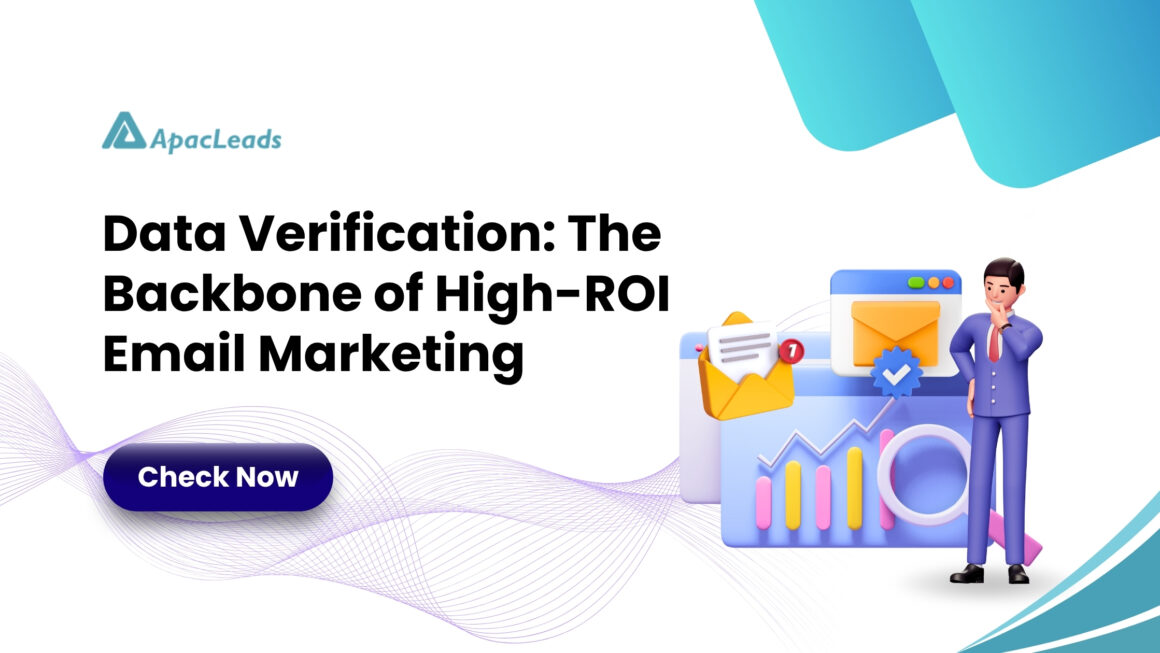If you’re working in B2B sales, marketing, or business development, you already know that prospecting is the lifeblood of your pipeline. And no matter how great your product or service, if you don’t have access to accurate, relevant, and current contact data, your outreach campaigns can quickly fall flat. That’s why choosing the right B2B email list provider is such a crucial decision.
In today’s saturated market, suppliers range from huge platforms offering vast generalized databases to niche providers focused on very specific industries or roles. How do you decide which one fits your company best? Which provider will deliver clean, actionable contacts tailored to your ideal buyer personas?
This comprehensive guide unpacks every consideration you need to make before signing that first contract or hitting the “Buy” button. We’ll walk you through strategies, red flags to avoid, pricing nuances, data compliance, and even how to use AI tools to get informed before you buy.
Let’s dive in.
1. Know Your Target Market Inside and Out
Understand Your Ideal Buyer Profiles
Before anything else, get crystal clear on who you’re trying to reach with your email campaigns. B2B sales aren’t one-size-fits-all, and neither are B2B contact lists.
- Industry: Are you focusing on software companies, manufacturing, healthcare, or fintech? Email lists tailored to your vertical are usually more accurate.
- Roles and Titles: Do you want CIOs, procurement managers, marketing directors, or finance leads? Some lists are more granular, offering detailed role segmentation.
- Company Size & Revenue: Enterprise? SMB? Startups? Identifying these filters helps refine your list.
- Geography: Are you targeting one country, multiple regions, or global prospects?
Why Industry-Specific Providers Often Outperform
Broad B2B databases might offer volume, but smaller, niche providers frequently deliver better-quality contacts for specific industries. They often maintain tighter data hygiene within their specialization, and contacts are likely to be more engaged or relevant.
Ask Yourself:
- Does the provider have extensive, deep datasets for my industry?
- Can I filter and segment the contacts by seniority, department, or location?
- How often is this data updated?
2. Data Accuracy: The Cornerstone of Effective Outreach
What Does “Accurate Data” Really Mean?
Accuracy means fresh, verified contact details emails that actually reach your prospects, phone numbers that ring, and correct job titles aligning with the right decision-makers.
Poor data quality is a deal breaker. Sending campaigns to outdated or fake contacts wastes marketing budget and tarnishes your sender reputation.
Verification Processes to Look For
- Email Validation: Does the provider use bounce testing and real-time validation?
- Direct Sourcing vs Aggregation: Are contacts collected directly from primary sources like company websites, LinkedIn, or trade shows, or aggregated from third-party databases?
- Regular Updates: How frequently is the list refreshed? Monthly? Quarterly? Real-time?
The Impact of Data Decay
B2B data ages quickly as people change jobs, companies reorganize, or businesses close. Industry research shows contact data can degrade 25%-30% annually. Providers who update frequently will save you from wasted emails and lower engagement.
3. Legal Compliance and Privacy: A Critical Consideration
In 2025, compliance with privacy laws isn’t just a best practice – it’s mandatory. Regulations like GDPR in Europe, CCPA in California, and other local data privacy laws govern how personal data (including professional emails) can be collected, stored, and used.
What to Look for From Your Provider
- Explicit Consent: Has the provider obtained permission from contacts to be included in marketing databases?
- Compliance Documentation: Providers should openly share their compliance certifications or policies.
- Transparent Opt-Out Options: Contacts should have clear ways to unsubscribe or remove their details.
Failing to comply can lead to hefty fines, lawsuits, and blacklisting by email service providers.
Practical Tips:
- Avoid buying data from vendors who sell scraped or “gray-market” contacts.
- Insist on a compliance audit or data processing agreement before purchase.
- Train your internal teams on GDPR and CAN-SPAM compliance relevant to purchased lists.
4. Pricing Models and Licensing: Know Exactly What You’re Paying For
Every provider has a different way to charge, and if you don’t ask the right questions, you might pay more than you expected or face hidden restrictions.
Common Pricing Models
- Per Contact: You pay a fixed rate per email or phone contact.
- Subscription: Flat monthly/annual fee with access to a certain number or unlimited contacts.
- Credits or Packages: Bundles of contacts you can redeem over time.
- Pay-as-You-Go: Purchase small segments when needed.
Important Licensing Questions
- How many times can you use the data? Single campaign use, multiple sends, or unlimited use?
- Are contacts exclusive or sold to multiple buyers?
- Is data provided in a format ready for your CRM or marketing automation platform?
Hidden Costs to Consider
- Setup or onboarding fees
- List segmentation/customization charges
- Fees for data enrichment like adding firmographic or intent data
5. Added Value: Data Enrichment, Integrations, and Support
The best email list providers don’t just give you raw data-they help you get more from it.
Data Enrichment Services
Providers might offer:
- Firmographic data: Firmographic data describes key attributes of a business, like industry, company size (revenue, employees), location, ownership, and growth trends. It helps companies segment, target, and tailor marketing and sales strategies effectively.
- Technographic data: It provides insight into the technologies a company uses, such as hardware, software, and IT infrastructure. This information helps businesses tailor their outreach and offers to better match a prospect’s current tech setup, improving targeting and qualification.
Integration Ease
Does the provider support direct imports to CRMs like Salesforce, HubSpot, or marketing automation tools? Or do they just give you raw CSVs?
Quality Customer Support
- Onboarding guidance or tutorials
- Dedicated account managers
- Support channels (chat, phone, email)
Excellent support accelerates your campaign launch and troubleshooting.
6. Research Reviews and Benchmark Providers
Doing your own research is critical to avoid scams and sub-par products.
Where to Find Reliable Information
- Testimonials and case studies on provider sites
- Independent review sites focusing on B2B data providers
- Peer recommendations in LinkedIn groups or industry forums
Comparing Top Providers
APAC Leads differentiates itself from global providers like ZoomInfo, Apollo.io, UpLead, and Dun & Bradstreet by focusing specifically on the Asia-Pacific market, offering deeply researched, verified, and up-to-date contact data tailored to the region’s unique industries and fast-changing business environment. With strong compliance to local data privacy laws, competitive pricing and flexible licensing for SMBs and startups, localized customer support, and customizable data solutions, APAC Leads provides a more relevant, cost-effective, and legally secure option for companies targeting APAC compared to broader but less specialized global platforms.
APAC Leads vs Global Providers
| Feature | APAC Leads | Global Providers (e.g. ZoomInfo) |
| Regional Focus | ✅ APAC-specific | ❌ General/global |
| Customization Options | ✅ High | ❌ Limited |
| Pricing for SMBs | ✅ Affordable | ❌ Enterprise-tier |
| Data Freshness | ✅ Frequent | ⚠️ Varies |
| Support Quality | ✅ Localized | ❌ Offshore or generic |
Why Choose APAC Leads Over These Giants?
- If your focus is APAC markets, especially countries like Singapore, Malaysia, Indonesia, India, and beyond, APAC Leads delivers more precise and fresher contact data to power your lead generation.
- You benefit from pricing and licensing tailored to regional SMBs and startups, avoiding overpaying for broad global data you don’t need.
- Compliance with local data privacy laws reduces legal risks in these often complex markets.
- Localized support facilitates quicker implementation and better alignment with regional business practices.
- Ability to customize data sets for industry verticals and company sizes in APAC improves targeting relevance and campaign ROI.
Summary Checklist for Choosing the Right B2B Email List Provider:
- Define your target buyer personas by industry, role, geography
- Confirm data accuracy, update frequency, and source ethics
- Verify privacy regulation compliance (GDPR, CCPA, CAN-SPAM)
- Understand pricing models and usage rights thoroughly
- Look for enrichment options and integration support
- Read real-world reviews and case studies
- Leverage AI tools to compare vendors and draft outreach
Final Thoughts
Choosing a B2B email list provider might seem like a straightforward purchase, but it’s anything but. The impact of your contact data ripples across your marketing ROI, brand reputation, and sales pipeline velocity. Investing time upfront to carefully evaluate providers will pay off handsomely. The best data fuels engaging campaigns that reach the right decision-makers at the right moment – maximizing conversions and reducing costly errors.
For businesses targeting the Asia-Pacific market, APAC Leads offers a specialized advantage with deeply researched, verified contact data tailored specifically for this region’s unique industries and fast-evolving business environment. Their strong compliance with local data privacy laws, competitive pricing, flexible licensing, and localized customer support make them a trusted partner to build a smarter, more scalable revenue engine. Staying informed about data trends, regulatory changes, and new technology is crucial, so choose your data partner thoughtfully and revisit your options regularly to maintain a competitive edge.
Ready to find your ideal provider? Start by defining your audience, and let us be your trusted partner on this journey. Use our expertise and resources as your playbook to choose wisely we’re here to help you connect with the right contacts and accelerate your growth.
Request a demo today to see firsthand how our data solutions can power your success.
We look forward to working with you!
Frequently Asked Questions (FAQs)
Is it legal to buy B2B email lists?
Yes, but it depends on how the data was collected and how you use it. Providers must comply with data privacy laws like GDPR or CAN-SPAM and ensure contacts gave consent. Always verify your provider’s compliance credentials.
How often should I refresh my B2B email list?
Ideally, refresh at least every 3-6 months. Contacts change roles or leave companies frequently, so stale lists hurt deliverability and engagement.
Should I build my own list or buy one?
Building your own list takes time and effort but ensures data quality and relevance. Buying lists is faster but requires careful vetting to avoid poor-quality or non-compliant data. Often, a hybrid approach works best.
What is data enrichment and why does it matter?
Data enrichment adds extra context like company size, tech stack, or buying signals to raw contact data. It helps personalize your outreach and qualify leads better for higher conversion rates.
How do I check if a B2B email list provider is trustworthy?
Look for transparent data sourcing, detailed compliance documentation, customer reviews, and trial samples. Avoid providers unwilling to share their data collection practices.
Can AI tools help me with my email campaigns using purchased lists?
Absolutely! AI assistants can generate cold email templates, suggest follow-up sequences, and analyze your campaign data to optimize outreach.If you take a methodical approach and keep buyer compliance and data quality front and center, choosing your next B2B email list provider will become a straightforward, high-return decision.


